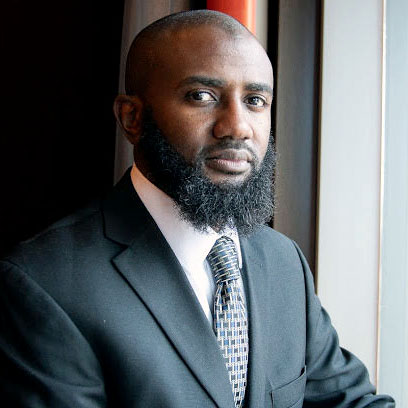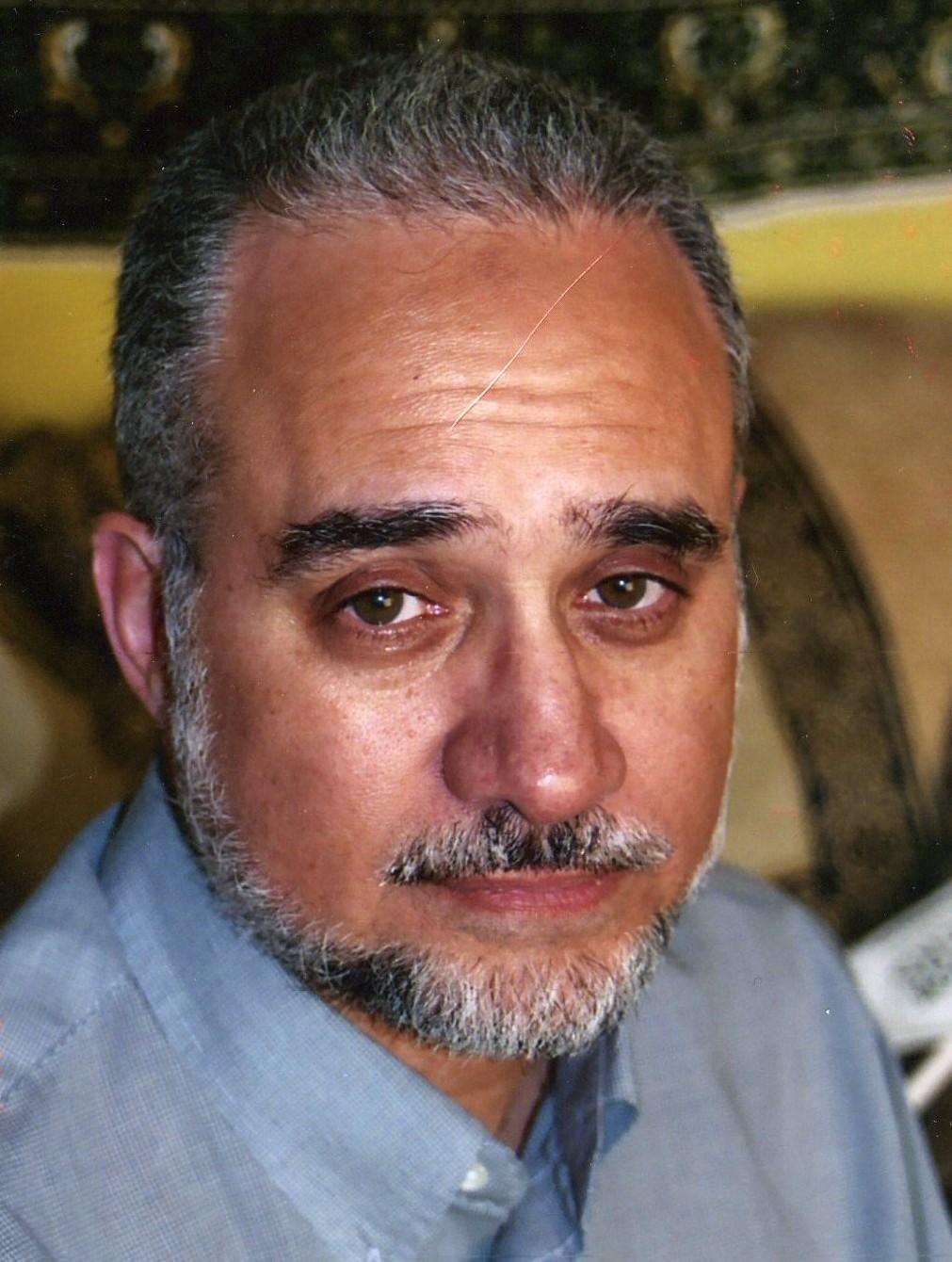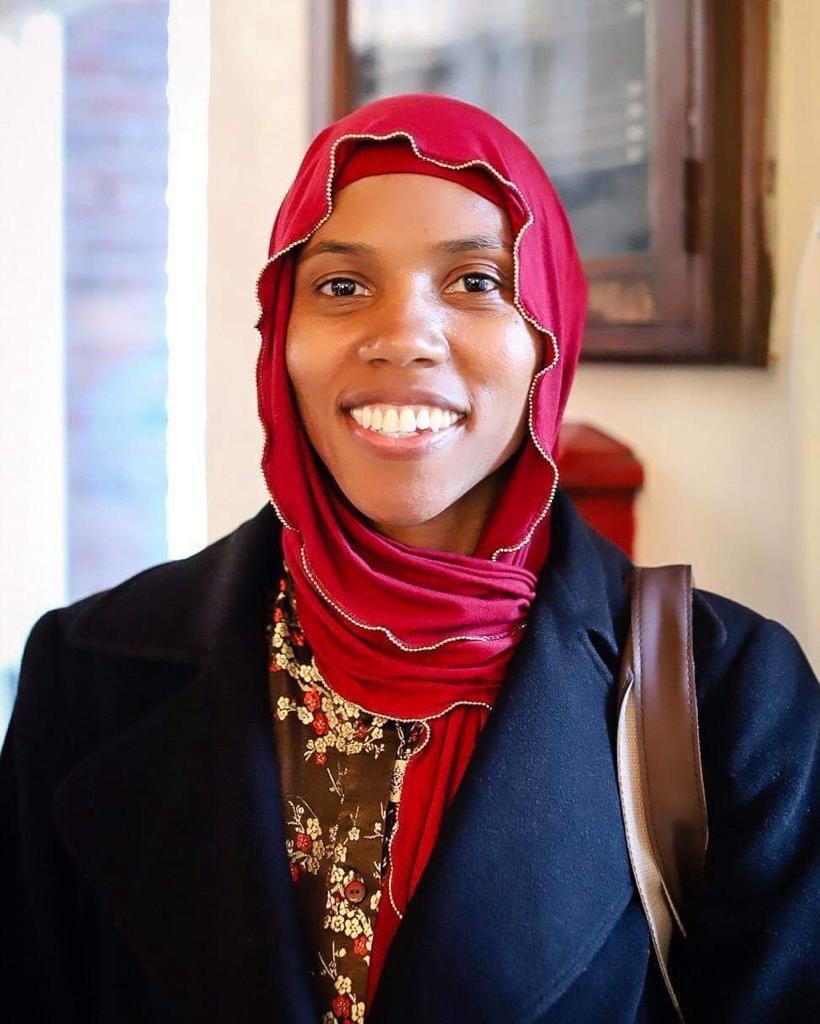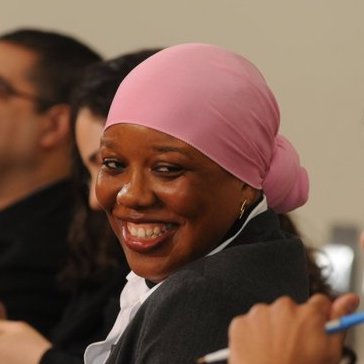ISPU works towards an America where all Muslims are thriving and equal. We study the most diverse faith community in America and strive to ensure that all Muslim communities are represented through our research and education projects.
It is therefore vitally important to uplift Black Muslim experiences throughout our work and organization. However, we have yet to successfully create equity with the presence of Black Muslim voices, experiences, and expertise—despite the fact that Black Muslims represent one-third of the American Muslim community, pioneered in establishing and growing Islam in America, and have borne the brunt of racial injustice and racism throughout our county’s history.
To continue to address this important priority, ISPU established a staff and board racial equity committee. This committee is charged with addressing racial equity throughout the organization.
As part of this initiative, and to specifically address racial equity within our research and education work, we successfully secured funding for the Black Muslim Research Working Group in 2020, a project we conceptualized three years before as a part of our organization’s strategic planning. The Working Group provides a proactive way to examine our research and education projects to ensure that we are amplifying and uplifting Black Muslim experiences and creating an anti-racist organizational culture within our programming. The ISPU Working Group on Black Muslim Research is a key component of our broader racial equity work. It is also an integral component of our research and education work overall, informing every aspect of our projects from inception to implementation.
The ISPU Working Group on Black Muslim Research was critical in shaping the Black Muslim Experiences Research Fellowship, as well as selecting our inaugural Black Muslim Experiences Research Fellow, Rasheed El Shabazz. Working group members will continue to work with Mr. Shabazz in an advisory capacity throughout his fellowship.
We are pleased to announce that we have secured funding to continue the ISPU Working Group for Black Muslim Research for another year between April 2022–March 2023. Meet these leaders and scholars below.
Quaiser Abdullah
Quaiser Abdullah, PhD, is an Assistant Professor in the Communication and Social Influence Department in Klein College of Media and Communication at Temple University. He primarily teaches courses on conflict resolution and communication. Quaiser is the faculty advisor for the Muslim Student Association at Temple. He is a board member of the Interfaith Center of Greater Philadelphia, Good Shepherd Mediation Program, and the Association of Muslim Chaplains. He also serves as police chaplain for the 18th district in the Philadelphia Police Department and is currently the COO, interim director of the board, and imam at Quba Institute. Quaiser does consulting and training through his own company, Statera Coaching and Leadership Consulting. Quaiser is a certified Conflict Resolution in Education trainer, professional coach, conflict coach, positive discipline educator, and a trained mediator in the area of transformative mediation, with a focus on family, divorce and custody mediation.
Quaiser’s research interests center around identity and conflict, leadership and conflict management and religious identity. Quaiser authored a chapter entitled “Muslim Leader Formation and Education,” published by SAGE in the Religious Leadership: A Reference Handbook (2012). His chapter, “Daanaa Abdullah: Exemplar of Community Leadership” was published in Democratic Ethical Educational Leadership: Reclaiming School Reform in 2015 by Routledge.


Ihsan Bagby
Ihsan Bagby is an associate professor in the department of Islamic Studies at the University of Kentucky whose research focuses on Muslims in America. In 2001, he published the results of the first comprehensive study of mosques in America, entitled The Mosque in America: A National Portrait. Based on the 2001 study, Dr. Bagby published four articles, “Imams and Mosque Organizations in the United States” in Muslims in the United States, “A Profile of African American Mosques” in Journal of the Interdenominational Theological Center, “Attitudes of Mosque Participants Towards America” in A Nation of Religions: The Politics of Pluralism in Multireligious America, and “The Mosque in the American Public Square” in Muslims’ Place in the American Public Square.
Dr. Bagby is the author of the US Mosque Survey, a comprehensive statistical study of mosques located in the United States. The survey is an ongoing decadal survey which was conducted previously in 2000 and 2010. The US Mosque Survey 2020 was co-published by ISPU in collaboration with the Center on Muslim Philanthropy and the Islamic Society of North America.
Jamillah Karim
Jamillah Karim is an award-winning author, speaker, and blogger. She specializes in race, gender, and Islam in America. Jamillah is the author of Women of the Nation: Between Black Protest and Sunni Islam (with Dawn-Marie Gibson) and American Muslim Women: Negotiating Race, Class, and Gender Within the Ummah, which was awarded the 2008 Book Award in Social Sciences by the Association for Asian American Studies.
Jamillah blogs for Sapelo Square, Hagar Lives, Race+Gender+Faith, NYU Press Blog, and Huffington Post Religion. She regularly speaks at college campuses and Muslim conferences across the nation. In 2014, her scholarly activism was recognized by JET magazine, which featured her as a young faith leader in the African American community. Jamillah is a former associate professor in the Department of Religious Studies at Spelman College. She holds a BSE in electrical engineering and a PhD in Islamic Studies from Duke University.


Precious Rasheeda Muhammad
Precious Rasheeda Muhammad—author, award-winning speaker, historian, poet, publisher, and Harvard-trained researcher—is nationally known for her ability to educate, inspire, and empower live audiences and readers of diverse racial, religious, ethnic, and socio-economic backgrounds about the growth and development of Islam in America and the full diversity of the American Muslim experience.
The preeminent Publishers Weekly, “widely recognized as the [publishing] industry’s publication of record,” describes Precious Rasheeda Muhammad’s chapter, “To Be Young, Gifted, Black, American, Muslim, And Woman,” in the book Living Islam Out Loud: American Muslim Women Speak, as one of the “best” and “most absorbing essays” … in an anthology that “opens the door for other writers to explore the important and understudied topic of Muslim American women.” Precious’s research, articles, essays, and spoken word have appeared in the award-winning book Taking Back Islam: American Muslims Reclaim Their Faith (Rodale Press), the African American National Biography (Oxford University Press), Living Islam Out Loud: American Muslim Women Speak (Beacon Press), the Encyclopedia of Islam in the United States (Greenwood Press), Journal of Africana Religions, Azizah magazine, Upscale magazine, the Muslim Journal, on Beliefnet.Com, LitHub.Com, TheRumpus.Net, Patheos.Com (which hosted her now-retired blog: Muslim History Detective), Minnesota Public Radio, National Public Radio, CNN.Com, The Virginian Pilot, and the channel formerly know as the WB, to name just a few. Additionally, some of her writings have been used in courses at diverse universities such as Harvard, Emory, the University of Michigan, and Spelman. Exhibits Precious curated and/or advised on have been covered in publications such as the New York Times and debuted at the U.S. Department of State.
Her 80-plus page paper “Muslims and the Making of America,” commissioned and published by the Muslim Public Affairs Council (MPAC), was distributed to hundreds of policymakers and change-makers in Washington,D.C., including members of the United States Congress and White House officials.
From vibrant audiences at the Smithsonian, the Chicago Historical Society, and the Harvard Club of New York to the classrooms of Harvard, Yale and Wellesley to the museums, historical societies, and seminaries of places such as Portland, Maine, Dallas, Texas, and Detroit, Michigan, to locations in between and beyond–including Cambridge University in the United Kingdom and a maximum-security prison in Warren, Maine–Precious skillfully educates her audiences. At times, she has shared the stage with internationally respected religious leaders, nationally acclaimed scholars, and respected heads of leading organizations within the American Muslim community such as Imam Zaid Shakir, Dr. Umar Faruq Abd-Allah, the late Imam W.D. Mohammed, and Dr. Ingrid Mattson.

Quaiser Abdullah
Quaiser Abdullah, PhD, is an Assistant Professor in the Communication and Social Influence Department in Klein College of Media and Communication at Temple University. He primarily teaches courses on conflict resolution and communication. Quaiser is the faculty advisor for the Muslim Student Association at Temple. He is a board member of the Interfaith Center of Greater Philadelphia, Good Shepherd Mediation Program, and the Association of Muslim Chaplains. He also serves as police chaplain for the 18th district in the Philadelphia Police Department and is currently the COO, interim director of the board, and imam at Quba Institute. Quaiser does consulting and training through his own company, Statera Coaching and Leadership Consulting. Quaiser is a certified Conflict Resolution in Education trainer, professional coach, conflict coach, positive discipline educator, and a trained mediator in the area of transformative mediation, with a focus on family, divorce and custody mediation.
Quaiser’s research interests center around identity and conflict, leadership and conflict management and religious identity. Quaiser authored a chapter entitled “Muslim Leader Formation and Education,” published by SAGE in the Religious Leadership: A Reference Handbook (2012). His chapter, “Daanaa Abdullah: Exemplar of Community Leadership” was published in Democratic Ethical Educational Leadership: Reclaiming School Reform in 2015 by Routledge.

Ihsan Bagby
Ihsan Bagby is an associate professor in the department of Islamic Studies at the University of Kentucky whose research focuses on Muslims in America. In 2001, he published the results of the first comprehensive study of mosques in America, entitled The Mosque in America: A National Portrait. Based on the 2001 study, Dr. Bagby published four articles, “Imams and Mosque Organizations in the United States” in Muslims in the United States, “A Profile of African American Mosques” in Journal of the Interdenominational Theological Center, “Attitudes of Mosque Participants Towards America” in A Nation of Religions: The Politics of Pluralism in Multireligious America, and “The Mosque in the American Public Square” in Muslims’ Place in the American Public Square.
Dr. Bagby is the author of the US Mosque Survey, a comprehensive statistical study of mosques located in the United States. The survey is an ongoing decadal survey which was conducted previously in 2000 and 2010. The US Mosque Survey 2020 was co-published by ISPU in collaboration with the Center on Muslim Philanthropy and the Islamic Society of North America.

Precious Rasheeda Muhammad
Precious Rasheeda Muhammad—author, award-winning speaker, historian, poet, publisher, and Harvard-trained researcher—is nationally known for her ability to educate, inspire, and empower live audiences and readers of diverse racial, religious, ethnic, and socio-economic backgrounds about the growth and development of Islam in America and the full diversity of the American Muslim experience.
The preeminent Publishers Weekly, “widely recognized as the [publishing] industry’s publication of record,” describes Precious Rasheeda Muhammad’s chapter, “To Be Young, Gifted, Black, American, Muslim, And Woman,” in the book Living Islam Out Loud: American Muslim Women Speak, as one of the “best” and “most absorbing essays” … in an anthology that “opens the door for other writers to explore the important and understudied topic of Muslim American women.” Precious’s research, articles, essays, and spoken word have appeared in the award-winning book Taking Back Islam: American Muslims Reclaim Their Faith (Rodale Press), the African American National Biography (Oxford University Press), Living Islam Out Loud: American Muslim Women Speak (Beacon Press), the Encyclopedia of Islam in the United States (Greenwood Press), Journal of Africana Religions, Azizah magazine, Upscale magazine, the Muslim Journal, on Beliefnet.Com, LitHub.Com, TheRumpus.Net, Patheos.Com (which hosted her now-retired blog: Muslim History Detective), Minnesota Public Radio, National Public Radio, CNN.Com, The Virginian Pilot, and the channel formerly know as the WB, to name just a few. Additionally, some of her writings have been used in courses at diverse universities such as Harvard, Emory, the University of Michigan, and Spelman. Exhibits Precious curated and/or advised on have been covered in publications such as the New York Times and debuted at the U.S. Department of State.
Her 80-plus page paper “Muslims and the Making of America,” commissioned and published by the Muslim Public Affairs Council (MPAC), was distributed to hundreds of policymakers and change-makers in Washington,D.C., including members of the United States Congress and White House officials.
From vibrant audiences at the Smithsonian, the Chicago Historical Society, and the Harvard Club of New York to the classrooms of Harvard, Yale and Wellesley to the museums, historical societies, and seminaries of places such as Portland, Maine, Dallas, Texas, and Detroit, Michigan, to locations in between and beyond–including Cambridge University in the United Kingdom and a maximum-security prison in Warren, Maine–Precious skillfully educates her audiences. At times, she has shared the stage with internationally respected religious leaders, nationally acclaimed scholars, and respected heads of leading organizations within the American Muslim community such as Imam Zaid Shakir, Dr. Umar Faruq Abd-Allah, the late Imam W.D. Mohammed, and Dr. Ingrid Mattson.

Jamillah Karim
Jamillah Karim is an award-winning author, speaker, and blogger. She specializes in race, gender, and Islam in America. Jamillah is the author of Women of the Nation: Between Black Protest and Sunni Islam (with Dawn-Marie Gibson) and American Muslim Women: Negotiating Race, Class, and Gender Within the Ummah, which was awarded the 2008 Book Award in Social Sciences by the Association for Asian American Studies.
Jamillah blogs for Sapelo Square, Hagar Lives, Race+Gender+Faith, NYU Press Blog, and Huffington Post Religion. She regularly speaks at college campuses and Muslim conferences across the nation. In 2014, her scholarly activism was recognized by JET magazine, which featured her as a young faith leader in the African American community. Jamillah is a former associate professor in the Department of Religious Studies at Spelman College. She holds a BSE in electrical engineering and a PhD in Islamic Studies from Duke University.

